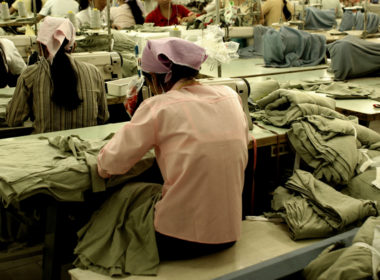Snapshot
- If there is one key takeaway when considering human rights in 2021, it is that organisations must be prepared for increased scrutiny – from international and domestic trading partners, international and domestic governments, regulatory agencies, investors, civil society, consumers and shareholders.
- This article outlines seven important developments to watch and how they will affect Australian businesses in 2021.
There is one key takeaway when considering human rights in 2021: organisations must be prepared for increased scrutiny – from international and domestic trading partners, international and domestic governments, regulatory agencies, investors, civil society, consumers and shareholders. In this article we outline seven important developments to watch:
- increased scrutiny on supply chains, particularly in respect of the risks surrounding the alleged use of forced labour in China;
- greater expectations on organisations as the European Union inches closer to mandatory human rights and environmental due diligence – while it will likely span the full range of human rights and environmental issues, one important aspect will be an ability to demonstrate adherence to the principles of know your customer/know your supplier;
- burgeoning climate litigation reflecting the convergence of climate change and human rights;
- emphasis on human rights governance and disclosure;
- higher compliance expectations from local anti-bribery and corruption reform; and
- building pressure for demonstrable responsible business conduct in conflict areas.
1. Xinjiang and Chinese supply chains scrutinised
In 2021 organisations can expect increased pressure to clarify their links with Chinese labour from business partners, consumers, investors and governments. International concern about the treatment of ethnic minorities in China’s Xinjiang region is gaining momentum, with the US calling the mass detention of Uyghurs and other Turkic peoples in Xinjiang genocide and first-hand accounts of systemic rape, abuse and torture of women in detention being reported both internationally and in Australian media.
These allegations are leading to powerful responses by governments around the world. In January, the US banned imports of products containing cotton or tomatoes from Xinjiang, while the UK and Canada have also banned certain Xinjiang imports. In Australia, the Commonwealth government is considering bans on imports from Xinjiang, while also contemplating amendments to the Modern Slavery Act 2018 (Cth) (‘Modern Slavery Act’) to specifically address the issue. Senator Rex Patrick has introduced a private senator’s bill which would prohibit imports from Xinjiang.
These developments follow the Australian Strategic Policy Institute’s report published in March 2020 which documented forced Uyghur labour in the supply chains of over 80 companies, most of whose products can be found in retail stores around Australia.




